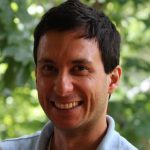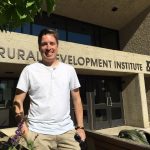Faculty Presenters at the 2016 ICRPS Summer Institute
Francisco Aguilar
University of Missouri
Dr. Francisco Aguilar is an Associate Professor at the University of Missouri’s School of Natural Resources. His research revolves around the study of forest resources, land owners, dependent industries, and final consumers. He is interested in the impact of public policies and environmental certification programs on land management practices and consumption patterns.
 Bill Ashton (webinar presenter)
Bill Ashton (webinar presenter)
Brandon University
Bill Ashton is the director of the Rural Development Institute at Brandon University. His career reflects active engagement with people, benefiting from applied research and facilitating action. As a professional planner, policy analyst, and now research director, he listens to issues and opportunities, contributes to developing policy, a helps with change — locally, provincially, and regionally. His teaching, research, and service to community reflect his interest in policy formulations, community-based development, leadership, governance, and an orientation to understanding future trends today.
 Ray Bollman
Ray Bollman
Brandon University
Ray Bollman retired from Statistics Canada in 2011, where he was the founding editor of Statistics Canada’s Rural and Small Town Canada Analysis Bulletins. There are 62 bulletins available at the Statistics Canada website. He is also a past-chair of the OECD Working Party on Territorial Indicators. He is now a Research Affiliate with the Rural Development Institute at Brandon University in Brandon, Manitoba, Canada.
In the past few years, he has written a series of “Focus on Rural Ontario” FactSheets for the Rural Ontario Institute; a series of FactSheets on Rural Manitoba for the Rural Development Institute at Brandon University; a report on Rural Canada and summary FactSheets for the Federation of Canadian Municipalities; and FactSheets on immigration for the E-Bulletin of the Pathways to Prosperity Project.
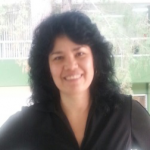 Lidia Carvajal
Lidia Carvajal
Universidad Autonoma del Estado de México
Lidia Carvajal is a professor in the Department of Economics at the Autonomous University of the State of Mexico. She currently teaches econometrics models, time series and econometrics methods. Her research interests focus on international migration, human capital in rural areas, remittances and rural policy and development in Mexico.
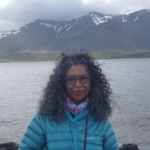 Philomena De Lima
Philomena De Lima
University of the Highlands and Islands, Inverness College
Philomena de Lima is a Sociologist and the Director of the Centre for Remote and Rural Studies at University of the Highlands and Islands, Inverness College, Scotland. Her particular research interests include exploring the complex and intersecting relationships between ‘communities of place’ (remote and rural places in particular) and ‘communities of interests,’ challenging normative assumptions about rural places and communities and giving voice to diverse groups who are ‘othered’ on various grounds using qualitative methods. She has applied her interests to issues such as belonging and intersectional identities, migration, ethnicity and race, disadvantage and to policy areas such as poverty and social exclusion, social welfare and environment. She has been an ICRPS faculty member since 2004, and supervises PhD students on a range of topics.
 John Devlin
John Devlin
University of Guelph
Dr. John Devlin is an Associate Professor in the School of Environmental Design and Rural Development, Rural Planning and Development Program at the University of Guelph, in Canada.
John began his involvement in development planning in 1979 with two years as a CUSO volunteer in Mozambique. He served as Assistant Director of the Centre for Development Projects at Dalhousie University from 1984 to 1986. From 1997 to 2000 he was Assistant Director of the Environmental Capacity Enhancement Project, a $4.5 million CIDA-funded project delivered by the Rural Planning and Development Program in 13 countries in Eastern and Southern Africa. He completed his PhD in Rural Studies in 2004. For three years (2003 to 2006) he was Assistant Professor in the International Development Studies Program of Saint Mary’s University in Halifax, Nova Scotia. He has been a University of Guelph faculty member since 2006.
His primary areas of academic interest include: the role of the state in development; environmental assessment and public participation; agricultural and environmental policy; and regional development collaboration. He is currently involved in several funded research projects examining collaborative regional economic development initiatives, local food systems, community-based water monitoring, and the diffusion of agricultural innovations. He has co-edited one book, Ecological Agriculture in Eastern and Southern Africa, and numerous articles and conference presentations on environment and development issues. He has conducted research or provided consulting services in Honduras, Bolivia, the Philippines, Vietnam, Egypt, Mozambique, South Africa, Zambia, Zimbabwe and Ukraine. He is Co-chair of the Public Participation Section of the International Association for Impact Assessment; a member of the Board of Directors of the Organic Council of Ontario; and a regular teaching faculty of the International Comparative Rural Policy Studies Summer Institute.
 Larry Duffy
Larry Duffy
University of Alaska Fairbanks
Dr. Lawrence Duffy received his BS in chemistry from Fordham University in 1969 and a MS degree in organic chemistry from the University of Alaska in 1971. Following three years of service in the US Navy, Lieutenant Duffy returned to the University of Alaska and completed his PhD degree in biochemistry in 1977. After several years of research at Boston University, the Roche Institute of Molecular Biology, the University of Texas and Harvard Medical School, Dr. Duffy returned to the University of Alaska where he has held numerous administrative positions and continues to teach biochemistry and research ethics.
Dr. Duffy has received the Carol Feist Outstanding Advisor Award, the NIDCD Minority Mentoring Award, the UAF Award for Professional Achievement, the Sven Ebbesson Neuroscience Award, the Usibelli Distinguished Research Award and the University of Alaska Chancellor’s Diversity Award. He is a fellow of the Arctic Institute of North America and the American Institute of Chemistry. He also serves as the Executive Director of the Arctic Division, American Association for the Advancement of Science.
 Ryan Gibson
Ryan Gibson
University of Guelph
Originally from an area described by WO Mitchell as the “least common denominator of nature, the skeleton requirements simply of land and sky,” Dr. Ryan Gibson has a deep intrigue and respect for rural communities, rural people, and the events that shape their futures. Growing up witnessing the transformations in rural development, agriculture, and their influence on communities instilled a fascination and commitment to rural issues. Over the past years Ryan has been a student, practitioner, and admirer of rural populations, dynamics, and interactions.
Ryan holds a PhD in economic geography from Memorial University. He is the Libro Professor in Regional Economic Development in the School of Environmental Design and Rural Development at the University of Guelph. Ryan’s research and community engagement focus on rural and regional development, multi-community collaboration, rural governance, and philanthropy. He is the President of the Canadian Community Economic Development Network and past-president of the Canadian Rural Revitalization Foundation.
More information about Dr. Gibson can be found at his website.
 Heather Hall
Heather Hall
University of Waterloo
Dr. Heather Hall is an Assistant Professor in Economic Development with the School of Environment, Enterprise and Development at the University of Waterloo (ON). She also serves as a board member for the Canadian Rural Revitalization Foundation (CRRF).
Heather grew up in Northern Ontario and has a professional and personal interest in researching economic and resource development in the Provincial North. She received a PhD. in Geography from Queen’s University (Kingston), an M.A. in Planning from the University of Waterloo, and a B.A. in Geography from Laurentian University (Sudbury). Her research interests include: regional development policy, planning and practice in the Provincial North; innovation and the future of work in the North; community impacts and responses to labour mobility; and Aboriginal communities and the mining sector.
Heather is currently a co-investigator with the SSHRC-funded On the Move Partnership looking at the community impacts of labour mobility in the nickel processing sector. She is also co-authoring the newest edition of Planning Canadian Regions and researching the relationship between Aboriginal communities and the mining sector in Northern Ontario. Heather is also a co-lead for the Commercialization of Science and Technology for the North Thematic Network with the University of the Arctic. Her research has been recognized nationally and internationally by the Canadian Association of Geographers’ Ontario division (CAGONT), the Innovation Systems Research Network (ISRN), and the Regional Studies Association.
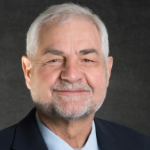 Thomas Johnson
Thomas Johnson
University of Missouri
Dr. Thomas G. Johnson is professor emeritus at the University of Missouri. He formerly had a joint appointment as the Frank Miller Professor of Agricultural and Applied Economics, and professor in the Harry S Truman School of Public Affairs at the University of Missouri. He is director of the Community Policy Analysis, which is affiliated with the Rural Policy Research Institute. Dr. Johnson is also director of RUPRI’s Analytic and Academic programs.
His recent research areas include the causes and consequence of rural economic development, fiscal and economic impact analysis, renewable energy, rural entrepreneurship, and rural wealth creation. He has studied rural policy issues in Canada, Korea, and several European countries. He is a founding member of the International Comparative Rural Policy Studies Consortium. He is the 2002 Fellow of the Southern Regional Science Association, 2006 recipient of the Outstanding Contribution through Economics Award from the Northeast Agricultural and Resource Economics Association, and 2007 recipient of the USDA Undersecretary’s Group Honor Award for Excellence. Professor Johnson has authored over 250 articles, papers, and book chapters and has co-authored or co-edited 5 books.
Wayne Kelly
Brandon University
Wayne Kelly believes that a vibrant rural Canada is essential for the country’s continued economic success and quality of life. Living, working, studying and travelling across Canada and internationally has reinforced the importance of rural development for Wayne and has highlighted that there are a wide range of opportunities for rural development in our changing world.
To contribute to the development of rural Canada, Wayne has been working in and studying rural development for more than 15 years. He has received his Masters of Rural Development from Brandon University and he is presently a PhD student at National University of Ireland, Galway. Wayne’s PhD research is exploring the potential of leadership roles for rural youth in digital technologies and how those youth could build both the digital capital and the resilience of rural communities. At the Rural Development Institute, Wayne is focused on applying innovative development research to help rural Canada realize the opportunities facing it as society, the economy and technology change. As the coordinator of the Rural Policy Learning Commons, Wayne is helping to build a network of rural policy researchers, practitioners and stakeholders that collaborate and share knowledge on rural policies, research and issues relevant to rural Canada and to rural communities across North America and Europe.
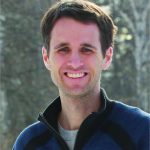 Nathan Kettle
Nathan Kettle
University of Alaska Fairbanks
Nathan Kettle is a Research Associate in the International Arctic Research Center at the University of Alaska Fairbanks and Co-Investigator for the Alaska Center for Climate Assessment and Policy (ACCAP). His research centers on supporting and evaluating action-oriented science to inform climate-sensitive decisions. Dr. Kettle’s current research projects focus the role of social networks in increasing adaptive capacity and best practices for supporting climate adaptation planning in rural Alaska. He earned his PhD (2012) in Geography at the University of South Carolina.
 Michael Koskey
Michael Koskey
University of Alaska Fairbanks
Mike Koskey is an assistant professor with the Center for Cross-Cultural Studies at the University of Alaska Fairbanks, which offers a Master’s of Arts in Cross-Cultural Studies and a PhD in Indigenous Studies. While serving in the Marine Corps he received a BS in Anthropology and a BA in Political Science from the University of Central Florida, and afterwards received an MS in Anthropology from Purdue University and a PhD in Anthropology from University of Alaska Fairbanks.
Mike’s research focuses on oral history, traditional knowledge, ethnohistory, culture change, decolonization, resource use and allocation, and indigenous cosmology/mythology. He is married and has two young boys, lives in Goldstream Valley, and enjoys hiking, hunting, and blacksmithing with family and friends.
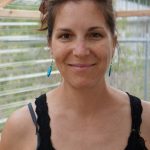 Alysa Loring
Alysa Loring
University of Alaska Fairbanks
Alysa Loring is an anthropologist, teacher, writer and editor with interests in education, Indigenous Studies, and climate change. She holds Master’s degrees in both anthropology and education, both from the University of Alaska Fairbanks, and is certified to teach secondary English, French, and Social Studies in the U.S. In addition to teaching middle and high school in California, Alaska, and Thailand, she has consulted on multiple education research and cross-cultural curriculum development projects. She currently works as a contract researcher for the Sustainable Futures North project.
Alysa’s primary research interests are in cross-cultural education, multiple ways of knowing and learning, and environmental science outreach and communication. Her expertise is in the design, development, and implementation of culturally-relevant, place-based science curriculum. She approaches learning as a “whole-person” process, of which classroom-based activities are only one (important) part. Her work in these areas over the years has afforded her the opportunity to work with educators, elders, and culture-bearers from many parts of Alaska and Hawai’i. As well, she has worked with leading arctic scientists on outreach concerning climate change and arctic sea ice, and on developing interdisciplinary environmental science programming.
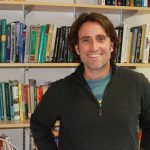 Phil Loring
Phil Loring
University of Saskatchewan
Affiliate: University of Alaska Fairbanks
Dr. Phil Loring is an anthropologist with training also in Indigenous studies and ecology. He is an assistant professor in the School of Environment and Sustainability at the University of Saskatchewan, where he and his graduate students work on a variety of research projects related to community food systems and security, fisheries, climate change, and social and environmental justice. His research is generally concerned with helping people achieve more sustainable and just ways of living. He focuses on three questions: what are the relationships between human well-being, ecosystem health, and sustainability; how can people with different values and priorities for natural resources manage conflict to coexist sustainably; and, how can people achieve win-win scenarios, where people’s well-being and the health of the environment thrive together?
Phil joined ICRPS as faculty in 2014, initially as faculty at the University of Alaska Fairbanks. He is also a member of the Rural Policy Learning Commons.
 Gary McNeely (webinar presenter)
Gary McNeely (webinar presenter)
Brandon University
Gary McNeely completed his Doctorate in philosophy from York University in 1995. He currently serves as the PLAR Coordinator, as well as an instructor in the Faculty of Arts at Brandon University. He has worked as a researcher at RDI since 2009, being involved in a number of projects, including the Choice Matrix and more recently the Rural Policy Learning Commons.
His current research interests have focused on essential skills development, qualification recognition both for Canadians and new immigrants to Canada, as well as on competency-based education as it pertained to training and professional development opportunities for rural policy analysts. He welcomes the opportunity to share his expertise in learning outcomes and recognition of prior learning with those engaged in research projects that build capacity in rural and northern communities.
 Willi Meyers
Willi Meyers
University of Missouri
William H. Meyers is Emeritus Professor of Agricultural and Applied Economics, and Director of CAFNR International Programs at the University of Missouri. He was Professor of Economics at Iowa State University from 1979 to 2003. From 1999 to 2002, he served as Director of the Agriculture and Economic Development Division of the FAO. He has been a Senior Fellow at the University of Bologna in 2011 and Visiting Consultant at the World Bank in 1999.
His professional career has been devoted primarily to economic modeling and analysis of agricultural trade and policy interactions and impacts for the United States and many other countries; policy reform and economic development in transition countries of Europe; and international agricultural, and rural development policy. He has published widely in these areas, the latest being as co-editor with Professor Andy Schmitz of the book Transition to Agricultural Market Economies: The Future of Kazakhstan, Russia, and Ukraine, just published by CABI.
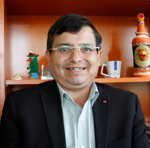 Gabino Nava-Bernal
Gabino Nava-Bernal
Universidad Autonoma del Estado de México
Gabino Nava-Bernal has been a lecturer-researcher at the Agricultural and Rural Research Institute (ICAR), Authonomous University of the State of México (UAEM) since 2004. He completed his PhD dissertation, titled “Local Maize Varieties in Central Mexico: their Management and Contribution to Campesinos’ Livelihoods” in 2003 from the School of Development Studies, University of East Anglia. He holds an MSc in Tropical Agriculture from Wye College, University of London, where his thesis was titled, “Economic Analysis for maize production system. Case study: San Felipe del Progreso, México.”
Dr. Nava-Bernal has been involved in research projects such as Agrodiversity Management and Natural Resources Management by indigenous people in Mexico and policy innovations in natural protected areas in Mexico.
His personal interests are to understand a detailed and integrated diagnostic of Natural Protected Areas, their periphery, and the associated rich patrimony of regulations and practices, in order to generate a scientific and methodological basis for alternative proposals for local development and for innovative policies in National Park management, and to contribute to national and international policy debates.
His research aims to be well positioned within the Mexican, European and international contexts since it involves a very significant topic — policy making from local experiences.
 Cathal Odonoghue
Cathal Odonoghue
Teagasc Mellows Campus, Ireland
Dr. Cathal O’Donoghue is a UCC graduate, a Statistician and Economist by training, with post graduate degrees from Oxford, UCD, the LSE, and Warwick, having worked previously at the ESRI, UK Government Economics Service, the University of Cambridge and NUI Galway.
His personal research programme involves the development and use of policy simulation models, for which he holds a Chair (extra ordinary (adjunct)) at the University of Maastricht, as well as Adjunct positions in UCD and NUIG. He has published over 150 research papers, four books, and supervised over 20 PhD students to completion. He has been an advisor to many international organisations and was a long term advisor to the UK Government’s Department of Work and Pensions on policy modelling earlier in his career.
Since 2005, he has been Head of Teagasc’s (Irelands Agriculture and Food Development Authority) Rural Economy and Development Programme — one of the four research programmes of Teagasc managing a team of research economists, extension specialists, survey staff and support staff and a budget of about €6m. He is a member of the board of Teagasc’s research directorate.
He was a member of the Fund Council of CGIAR, a $1 billion a year International Agri-Food Research organisation. From 2012-2014, he was CEO of the Irish Government’s Commission for the Economic Development of Rural Areas 2012-2014, Chairman of the Irish Sport Horse Strategy Committee 2013-2015, is currently President of the International Microsimulation Association and am on the Executive of the UK Agricultural Economics Society.
 Marco Pagani
Marco Pagani
University of Bologna
Marco Pagani is a post-doc fellow at the university of Bologna, where he teaches math and physics, and collaborates with RPLC as Liaison Officer and Publication Team Support. He holds an MS in Physics and a PhD in Agro-Food Sciences.
His research interests are focused on energy inputs and sustainability of agriculture and food supply chains, food waste, and renewable energy in rural areas.
 Harry Penn
Harry Penn
University of Alaska Fairbanks
Henry (Harry) Penn is a Civil Engineer and Ph.D. Candidate at the University of Alaska Fairbanks. He has a Master’s in Civil Engineering from Loughborough University in England. His research is centered broadly around water infrastructure and water security, with a focus on the role of human capital and responding to change — both climatological and sociocultural.
Beyond his research he’s a founding member of the Eastern Alaskan Range Avalanche Centre, whose mission is to provide avalanche awareness education, training, and weather observations to improve safety and increase understanding for recreational user groups.
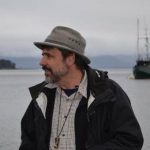 Todd Radenbaugh
Todd Radenbaugh
University of Alaska Fairbanks, Bristol Bay Campus
Bristol Bay Environmental Science Laboratory, Dillingham
Dr. Radenbaugh is an Associate Professor of Environmental Science at University of Alaska Fairbanks Bristol Bay Campus and Lead Coordinator of the Bristol Bay Environmental Science Laboratory in Dillingham, Alaska. He is president of the Western Alaska Interdisciplinary Science Association and past president of the Arctic Division of AAAS. His research interest traverses interdisciplinary topics including ecosystem health, sustainable energy, and paleoecology. He developed a place based Environmental Studies Certificate and occupation endorsements on water quality and solid waste management for UAF’s College of Community and Rural Development. He has published research articles in ecosystem health, paleontology, ecology, energy, conservation, and environmental science education. He is an advocate for citizen science for teaching non-traditional students why accurate data collection is important to their communities. Over the years he has learned from diverse cultures by working in many countries, including serving as a Peace Corps Volunteer in Jamaica.
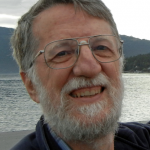 Bill Reimer (presenting remotely)
Bill Reimer (presenting remotely)
Concordia University, Montréal
Brandon University
Bill Reimer is a Professor Emeritus at Concordia University in Montréal and Adjunct Professor at Brandon University. He has directed two major research and policy networks related to rural and northern issues. From 1997 to 2008 he directed a Canadian national research project on the New Rural Economy, which included 13 universities, 35 partners, and 32 rural communities from all parts of Canada.
He is currently the Director of the seven-year Rural Policy Learning Commons — an international partnership involving 30 partners and 60 participants across nine countries. Both of these networks include researchers, policy-makers, practitioners, and citizens. His publications deal with community capacity-building, social support networks, social capital, social cohesion, municipal finances, the economy and the household, rural immigration, and the informal economy.
More details can be found at his website.
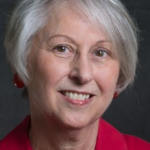 Judy Stallmann
Judy Stallmann
University of Missouri
Judith I. Stallmann is a professor at the University of Missouri. Her research focuses on the division of responsibilities between levels of government, competition between governments at the same level, and the impacts of population change and limits on fiscal flexibility on the fiscal standing of state and local governments. Internationally, she has worked in/taught in/done research on Honduras, Guatemala, Costa Rica, Nicaragua, Mexico, Thailand, and China.
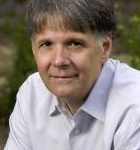 Brent Steel
Brent Steel
Oregon State University
Brent S. Steel is professor of political science and Director of the Public Policy Graduate Program at Oregon State University. He has published journal articles and book chapters concerning energy policy, environmental policy, science policy, state and local government, and sustainability. He is the coauthor of State and Local Government: Prospects for Sustainability (Oxford University Press, 2011) and editor of Science and Politics: An A to Z Guide to Issues and Controversies (Sage, 2014).
Dr. Steel earned his PhD at Washington State University and joined the political science faculty at OSU in 1998, after having positions at Washington State University and Oakland University (Michigan). He teaches courses in comparative politics, public policy theory, research methods, science policy, environmental policy, public administration, and state and local government.
 Thierno Thiam
Thierno Thiam
Tuskegee University
Dr. Thierno Thiam holds a Ph.D. in Political Science with a focus in International Relations from Purdue University. He is an Associate Professor of Political Science and International Relations at Tuskegee University. He joined Tuskegee University in December 2010 from the Institute for State Effectiveness (ISE) based in Washington D.C. The ISE blends conceptual thought, analysis and direct experience to rethink relations between citizens, states and markets in the globalized world.
Dr. Thiam’s academic activities span across several major universities, including Howard University, where he taught the Graduate Seminar in Comparative Politics, the University of Maryland — College Park, where he taught the Politics of Africa, and Purdue University, where he taught courses in International Relations. At Tuskegee University, Dr. Thiam’s courses include International Relations, International Organizations, and Comparative Government.
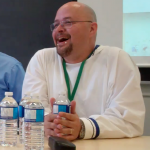 Sean Topkok
Sean Topkok
University of Alaska Fairbanks
“Uvaŋa atiġa Asiqłuq. My Iñupiaq name is Asiqłuq.” He is also called Dr. Charles “Sean” Topkok.
Sean is Iñupiaq, Sámi, Irish, and Norwegian. His family is from Teller, Alaska, and he currently lives in Fairbanks. He has worked at the Alaska Native Knowledge Network (ANKN) at the University of Alaska Fairbanks (UAF) since April 1997; and is now an Assistant Professor for the School of Education. Through his experiences at ANKN, he continues to work closely with Alaska Native communities and educators, as well as other Indigenous groups worldwide. He has been informally adopted by Yup’ik Elders, and formally adopted by the Tlingit, who gave him the name “Deikeejaakhw.”
Sean earned a Ph.D. in Indigenous Studies at UAF; as well, he has a Master of Arts degree in Cross-Cultural Studies and Bachelor of Arts degree in Humanities, both from UAF.
Sean is the founder and leader of the Pavva Iñupiaq Dancers of Fairbanks. Pavva encourages anyone interested in learning about Iñupiaq culture to participate. Members of the dance group include people from all over the Iñupiaq region including: Seward Peninsula, Northwest Arctic, and North Slope regions of Alaska.
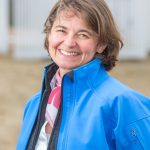 Sarah Trainor
Sarah Trainor
University of Alaska Fairbanks
Sarah Trainor is Assistant Professor of Social-Ecology Systems Sustainability in the School of Natural Resources and Extension and the International Arctic Research Center at the University of Alaska, Fairbanks. She directs the Alaska Center for Climate Assessment and Policy (ACCAP) and the Alaska Fire Science Consortium. Her research centers around assessing climate change vulnerability and documenting, planning, and evaluating climate change adaptation in Alaska and northern latitudes. Her research also includes the study of the process of communicating climate change and wildfire science for policy and decision-making and evaluating the efficacy of boundary organizations that focus on science communication for decision-making. She holds an M.A. (1996) and Ph.D. (2002) in Energy and Resources from the University of California, Berkeley and a B.A. in Philosophy and Environmental Studies from Mount Holyoke College (1992).
 Matteo Vittuari
Matteo Vittuari
University of Bologna
Matteo Vittuari, holds a PhD in International Cooperation and Sustainable Development Policies. He carried out post-doctoral research at the Center for International Development at Harvard University and in several universities and research centers in Europe and the USA.
Dr. Vittuari is currently a senior researcher and lecturer in agricultural and food policy and agricultural policy evaluation at the Department of Agricultural and Food Sciences at the University of Bologna. His research interests include food policy with particular attention in food waste and losses, economic and social aspects of agro-food and bioenergy systems, and rural development policy. He has worked as an international consultant for the evaluation of EU and FAO funded projects in Europe and Central Asia. He is currently coordinating the policy Work Package within the FP7 FUSIONS “Food Use for Social Innovation by Optimising Waste Prevention Strategies” and the behavioural economics Work Package within the Horizon2020 REFRESH “Resource Efficient Food and dRink for the Entire Supply cHain.” He is serving as Lead of the Publication Team within the “Rural Policy Learning Commons (RPLC)” project funded by SSHRC.
 Robert Zabawa
Robert Zabawa
Tuskegee University
Robert Zabawa, PhD Anthropology, has worked at Tuskegee University for over 30 years. His domestic research includes: small-scale and minority farming systems with an emphasis on land ownership, heir property, family networks and resettlement. His international research includes: agricultural development, production decision making, value chain analysis, and marketing strategies. He has worked in Belize, Senegal and Tanzania, and for the past 20 years he has been on a team promoting the adoption of the orange sweet potato in Ghana. This is his third ICRPS Summer Institute.


